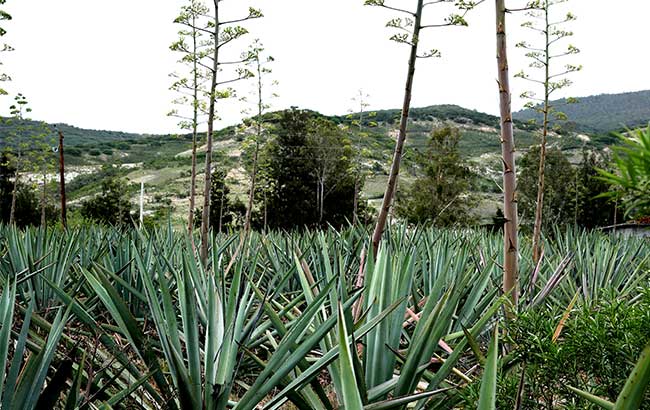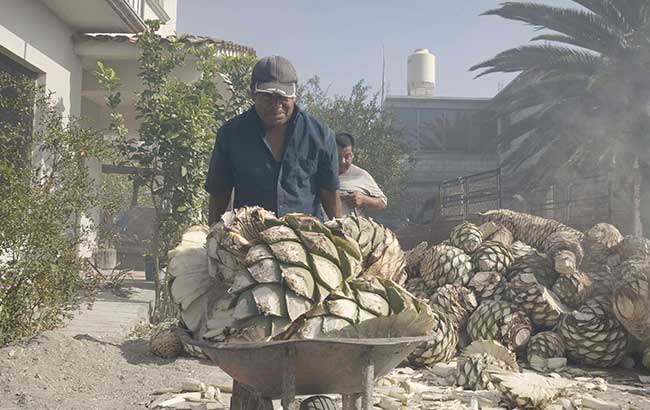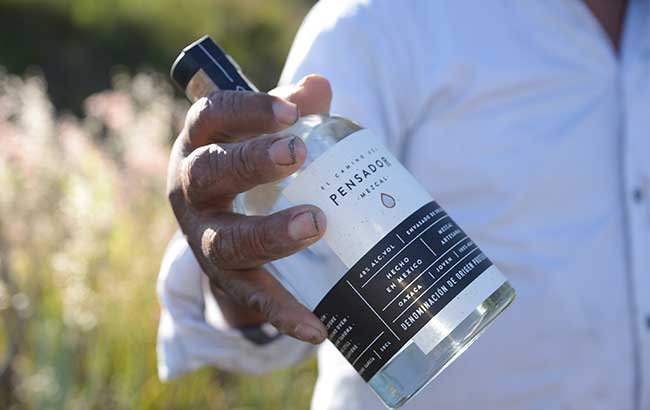This website uses cookies so that we can provide you with the best user experience possible. Cookie information is stored in your browser and performs functions such as recognising you when you return to our website and helping our team to understand which sections of the website you find most interesting and useful.
Monopoly no more: how mezcal certification is changing
By Kate MalczewskiDissatisfaction with the way the mezcal industry’s regulator operates has prompted competing bodies to begin certifying. What impact will their presence have on the category?

*This feature was originally published in the July 2021 issue of The Spirits Business magazine.
For years, the Consejo Regulador del Mezcal (CRM) has been the sole arbiter of the mezcal industry. In 1994, the Mexican government established a denomination of origin for mezcal and published a Norma Oficial Mexicana (NOM) outlining its official production standards, and three years later, the CRM was formed to enforce those standards. While the CRM doesn’t make the rules, its interpretation of them has long determined which producers get to use the term ‘mezcal’ on their labels – and gain the marketability, consumer recognition and resulting sales that accompany it.
That decision‐making process has a reputation for being costly and time consuming. Ben Schroder, founder of the brand Pensador, said: “There’s a lot of resentment towards the CRM for being slow and bureaucratic, overly expensive and complicated. Basically, people don’t really feel like it is there to help them; they feel like it’s a hurdle to overcome.”
In June 2020, the CRM was fined one million pesos by the government for ‘deceptive, abusive’ practices, raising further questions about its management of the mezcal category. Even more recently, producers’ feelings of “resentment” have been exacerbated by internal struggles over leadership at the CRM, which have caused delays in certification for some brands, as well as general uncertainty and unrest.
But a saga is unfolding that could loosen the CRM’s unyielding grip on mezcal certification. In 2017, the government began extending permission to certify mezcal to organisations beyond the CRM, eventually authorising three bodies that were already accredited as regulators for other Mexican products. The CRM took legal action against the other organisations, claiming itself as the only certifying body for mezcal recognised by law.
The court agreed with the CRM and ruled to suspend the other organisations from regulating. However, in March 2021, a judge determined that the CRM could not hold a monopoly on certification, and reinstated the other bodies as mezcal regulators.
More organisations have since been authorised – and with these developments, some people in the mezcal industry are hopeful that the landscape is shifting towards a healthier, more competitive certification system.
A change for the better?
Among these optimists is Alberto Esteban Marina. In his former role as the director general of the Secretariat of the Economy, Marina was responsible for designing the NOMs handed down by the Mexican government, including the specifications for mezcal. He said that the benefit of the new bodies is, in part, a matter of geography. “The territory for mezcal is very, very large,” he explains. “The cost to get the certification from Zacatecas and from Durango and other states in the Mexican republic is very high if you are not in Oaxaca.”
The CRM is based in Oaxaca, and its representatives must travel to certify spirits in other states, which requires more resources, and results in a more expensive certification process. Thus, regulatory organisations outside of Oaxaca should be able to serve the producers near them without charging prohibitive prices. “The existence of more certification bodies can reduce the cost of certification and better the quality of the service,” Marina said.
Lou Bank, co‐host of the podcast Agave Road Trip and founder of the nonprofit Sacred, agrees. He created Sacred to help support rural communities in Mexico, and thinks the new bodies could ultimately give producers in those communities more control over their spirits due to improved access to certification. “The key point to me is if enough small producers get their own certification, it could put control of the word ‘mezcal’ back into the hands of the families who have been nurturing it and keeping it traditional for all of these years,” he said.
Some brand owners also recognise benefits for their producers. “We’ll have to see how everything works out, right? But I can only see it as the producers will hopefully have more control, and that’s ultimately the best position to find ourselves in,” said Thea Cumming, owner of the Oaxaca‐made Dangerous Don brand. “Both of my producers are very much in favour of change.”

Hesitations remain
But there are also producers and brands that acknowledge the complications of working with the CRM, and still don’t think the new bodies are the solution.
While Ben Scott, importer of Mal Bien mezcal, notes that the CRM’s certification process “ends up taking much longer” than expected, his producers don’t plan on changing regulators. He said: “Our mezcaleros have familiarity with the CRM, and there’s not really the confidence that anyone else would be better.”
Mel Symonds, founder of Quiquiriqui Mezcal, has discussed the issue with her Mazatlán‐based producer, Carlos Méndez. She said: “We don’t know how it’s going to work out if we go with [a new certifying body] and then they fold, and then we have to go back to the CRM, then there’s going to be some issues at play there because [the CRM is] probably not going to look very favourably on anyone that broke away.”
Like Scott, Symonds explained she and her producer “didn’t really have much confidence in using another governing body”, and said her brand is more likely to adopt the generic ‘destilado de agave’ term than work with other organisations to certify.
Pensador’s Schroder is also sticking with the CRM despite “this feeling of the CRM isn’t really there to help producers”. “I understand the problem, but I’m not totally convinced this is the solution,” he said.
His hesitation stems from the potential issues the presence of more certifying bodies could create. He believes it could result in “a sort of race to the bottom”, with the organisations “interpreting the NOM in ways that are more preferable to producers” to attract trade.

Working towards clarity
The development and commercialisation of the mezcal category in recent years has resulted in growing pains. Many agree that the model of the past is no longer fit for purpose, and change is needed to ensure that the interests of small independent producers in all parts of the country are just as represented as those of large‐scale Oaxaca-based brands.
But it’s not yet known whether the introduction of more certifying bodies is a viable solution, as its potential benefits also raise more questions. Will lower costs help small producers bring their spirits to consumers, or allow big brands to further dominate the market? Will the presence of more regulatory organisations push the CRM to improve its practices to retain customers, or will it simply invest more energy into eliminating its rivals?
The latter question cannot be answered until the CRM’s internal political disputes are resolved, as its new leader will shape the body’s approach towards its competitors. In the meantime, clarity can only come as more producers initiate working relationships with the new bodies, taking the first steps into a brave new world of mezcal certification.
The CRM did not respond to multiple requests for comment. The Spirits Business will continue to report on developments in this story.

